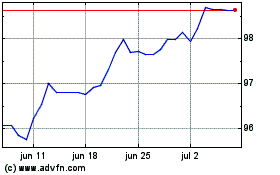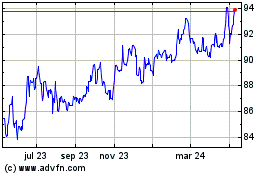New Zealand Budget 2017: Fiscal Position Continues To Improve
24 Mayo 2017 - 9:16PM
RTTF2
New Zealand Finance Minister Steven Joyce unveiled the 2017
budget in the election year, giving priority to family income and
investment.
In his first budget speech on Thursday, Joyce said the fiscal
position continues to improve.
The budget is set to log a NZ$1.6 billion surplus this year and
NZ$2.9 billion surplus in the year to June 2018, he said.
The surplus is expected to increase further to NZ$7.2 billion by
2020/21. At the same time, net core crown debt is forecast to fall
to 19.3 percent by 2020/21.
Real GDP is projected to grow 3.1 percent on average over the
next five years.
The budget raised the income tax thresholds to help lower-income
families and improve incomes for those with high housing costs.
The Family Incomes Package that cost NZ$2 billion to the
government will benefit 1,340,000 families, Joyce said.
Joyce said the government created over 200,000 more jobs over
the last three years and another 215,000 expected by 2021.
The government plans to invest NZ$4 billion to build the public
infrastructure needed to support growth.
The government's total investment in new infrastructure over the
next four years will be NZ$32.5 billion. This includes NZ$9.2
billion in new State Highways and NZ$2.7 billion in housing, the
minister said.
The economy has been growing at a firm pace in recent years,
Michael Gordon, acting chief economist at Westpac said. However,
some of the current drivers will fade over time.
The economist observed that the housing market, in particular,
is undergoing a slowdown.
"In that sense, the initiatives in today's Budget are a welcome
development in that they will help to brace the economy as other
drivers of growth moderate," said Gordon.
NZD vs Yen (FX:NZDJPY)
Gráfica de Divisa
De Mar 2024 a Abr 2024

NZD vs Yen (FX:NZDJPY)
Gráfica de Divisa
De Abr 2023 a Abr 2024
